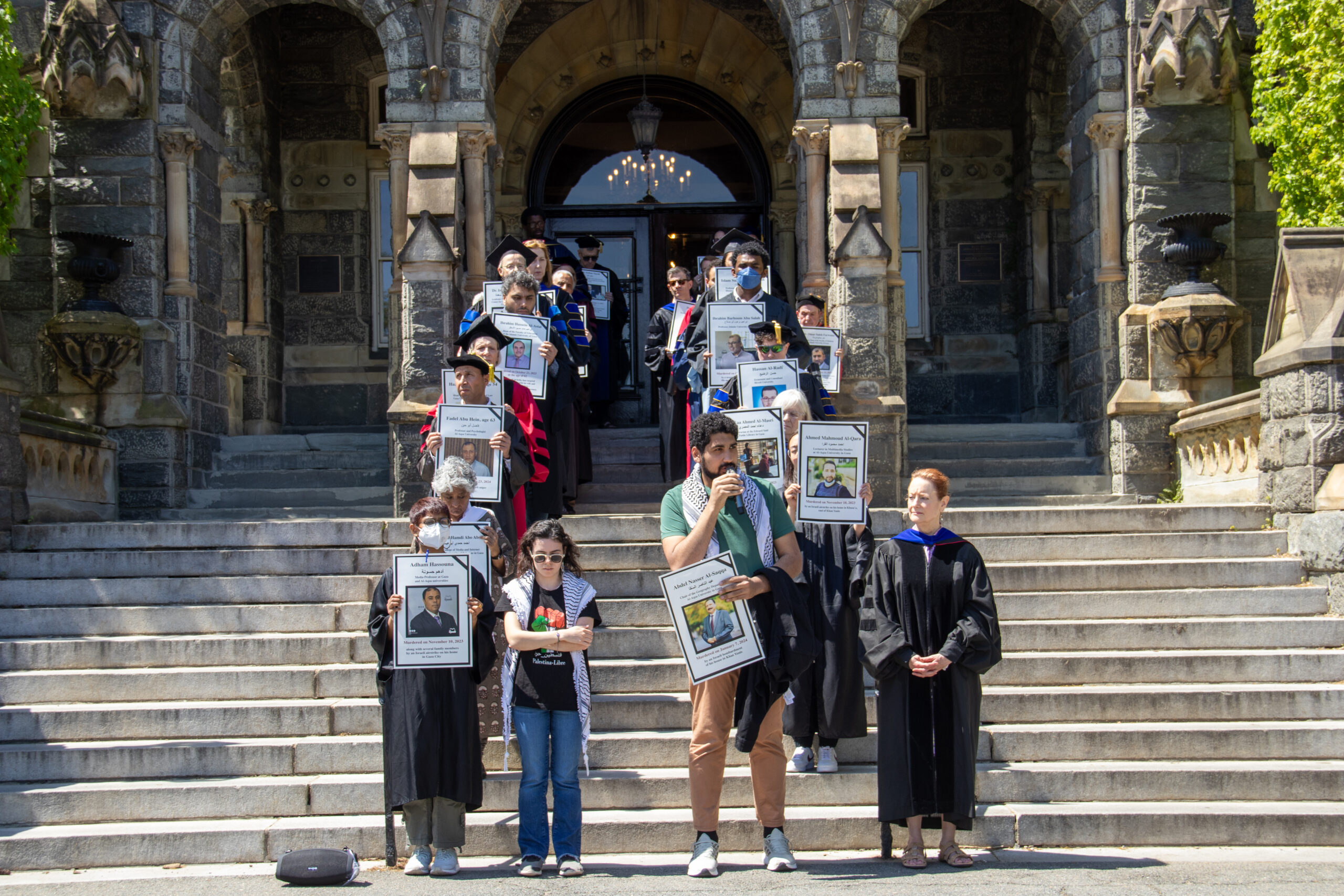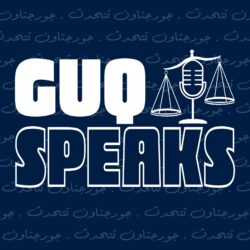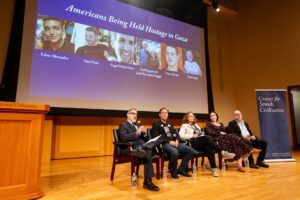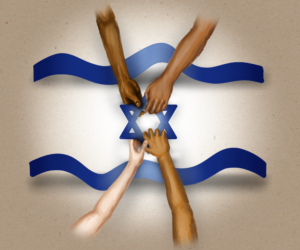Georgetown Faculty and Staff for Justice in Palestine (FSJP) held a vigil Tuesday at noon to mourn the Palestinian academics and university students killed by Israel in Gaza. This is the second vigil FSJP has held since the group’s founding in January.
On Oct. 7, Hamas militants attacked Israel, killing nearly 1,200 people. Israel’s subsequent invasion and bombardment of the Gaza Strip has killed more than 33,899 Palestinians and wounded over 76,664, in what some U.N. experts have categorized as an ongoing genocide. Additionally, Israeli state forces and settlers have killed more than 450 Palestinians, including 112 children, in the Israeli-occupied West Bank.
The vigil mourned not only the loss of human life, but also the decimation of educational institutions, cultural heritage sites, libraries, and archives. Since Oct. 7, all schools in Gaza have closed, more than 5,479 students and 261 teachers have been killed, 88,000 university students have had their studies indefinitely interrupted, and nearly 90% of all school buildings have been damaged or destroyed.
“The wanton assault on academic institutions in Gaza is an attack on educators everywhere,” FSJP wrote in a press release shortly before the vigil. “Just as we admire the contributions of our Palestinian colleagues as researchers, teachers, and administrators, we now grieve their loss, and demand a ceasefire.”
Each faculty member held a sign bearing the picture and biography of an academic who had been killed in Gaza. When prompted, they read the biography before the crowd of around 20 attendees, who collectively repeated each name. After the reading of biographies, two members of Zeytoun, a graduate student group that advocates for decolonization in Southwest Asia and North Africa, spoke about the impacts of Israel’s bombardment on students.
“For the students of Gaza, their hopes and plans for the future have been put on hold, as their lives and those of their families have been under constant threat,” Anna Wessels (G ’24) said at the vigil. “This is why we insist on calling what is happening in Gaza a genocide, because by targeting schools, hospitals, homes, and universities, Israel isn’t just killing Palestinians, they are working to destroy all aspects of Palestinian life in Gaza and the ability to rebuild that life.”
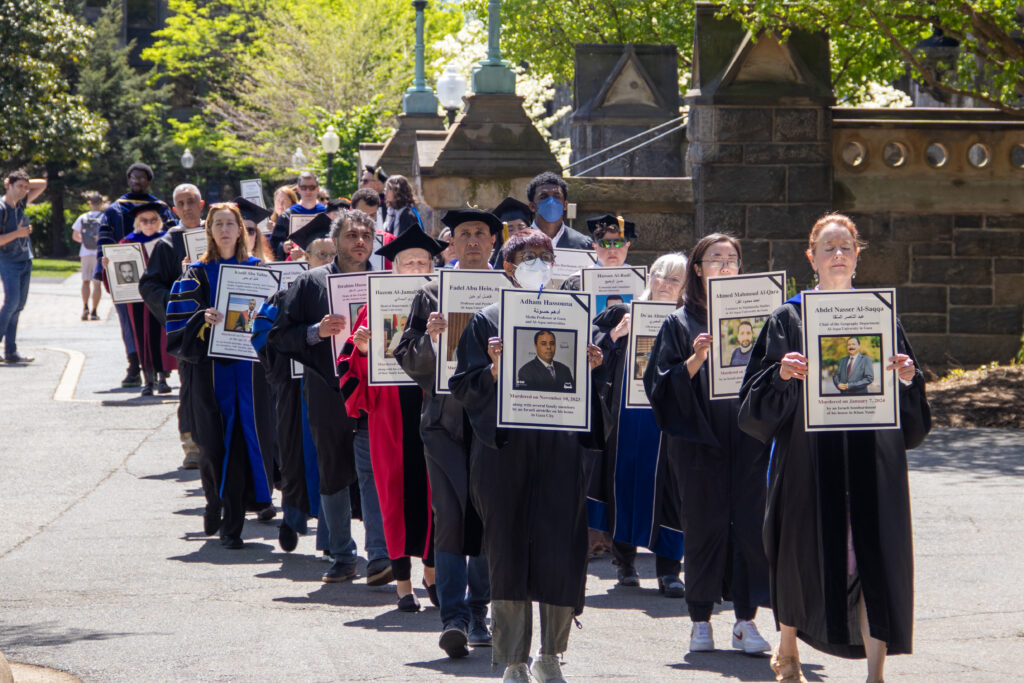
Photo by Connor Martin Georgetown faculty in academic regalia marching to Red Square.Photo by Connor Martin
This vigil was reminiscent of the first, held in January, with faculty dressed in full regalia arranged on Healy steps. Since then, Laurie King, professor in the department of anthropology, noted the number of academics who have been killed by Israeli forces has grown—and this time they had more signs than Georgetown faculty members to represent them.
The vigil ended with a moment of silence and the reading of two short poems, “If I must die” by Refaat Alareer and “I Grant You Refuge” by Hiba Abu Nada. Israeli airstrikes killed both Abu Nada and Alareer in October and December, respectively. The faculty members and attendees then processed to Red Square, where dates and bitter coffee were served, a common practice at Palestinian funerals.
Even as universities around the U.S. have suppressed student groups and canceled events expressing support for Palestine, FSJP and the other organizations in the Georgetown Divest Coalition, continue to demand an immediate ceasefire in Gaza and support the Boycott, Divestment and Sanctions (BDS) movement. FSJP has also signed on to a community statement which calls for university divestment from companies that create technologies used by the Israeli military, ending Georgetown’s study abroad program in Tel Aviv, along with other demands regarding the safety of Palestinian, Arab, and Muslim students.
“The most important thing is to end all investments and cooperation with Israeli state violence. That goes for either cooperation with Israeli universities whose research and whose faculty manage and develop the tools of occupation in the West Bank and Gaza, and our investments,” Elliot Colla, associate professor in the department of Arabic and Islamic Studies, said.
Georgetown currently invests over $31 million in Alphabet and Amazon, two companies that develop technologies for Project Nimbus, a cloud computing project used by the Israeli government and military. Employees at both companies believe it will facilitate the further oppression of Palestinians. On Tuesday, nine Google employees were arrested while protesting the project.
Faculty also described the impacts of the ongoing genocide on their Palestinian students and other Georgetown community members with connections to Gaza and the West Bank.
“I have students who have lost family members, whose families in Gaza and in the West Bank have been displaced, injured,” Colla said. “It’s very hard to go on with your daily life, studying, teaching, taking exams.”
As the end of the academic year approaches, FSJP will continue its advocacy for a ceasefire and university divestment and hopes students and others will join them.
“This was our second vigil. I hope we don’t have to do another one, but we will, if need be, when we come back to campus in the fall,” King said.


